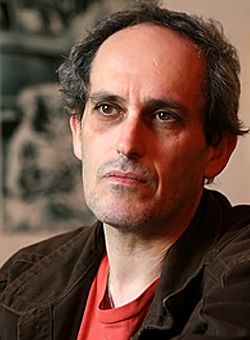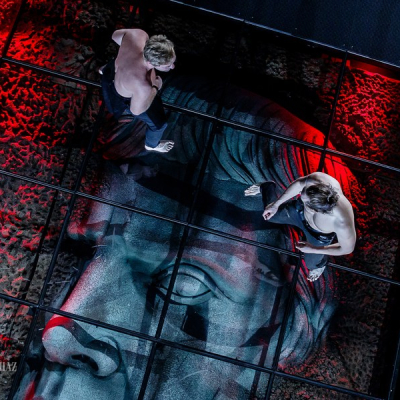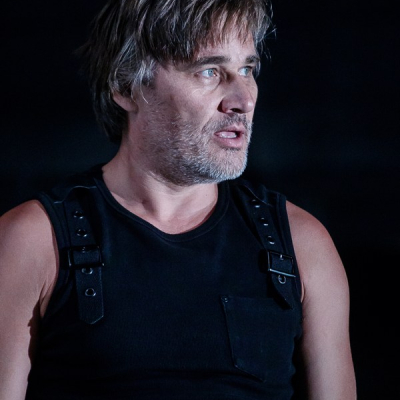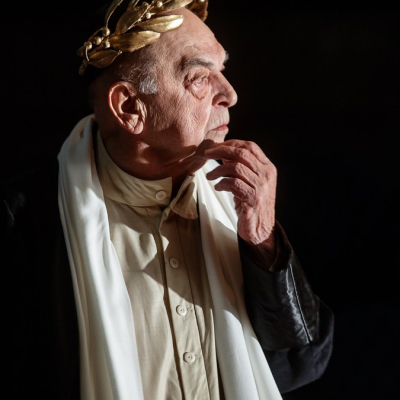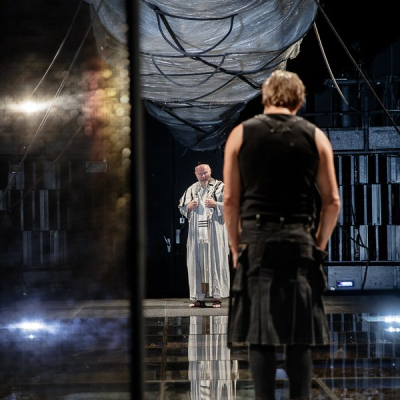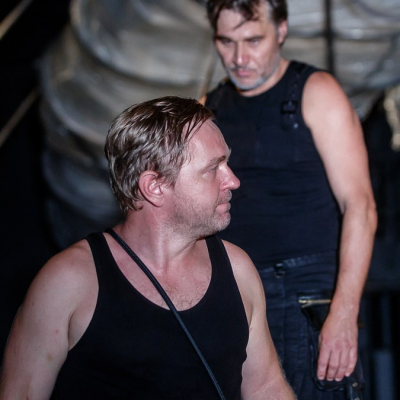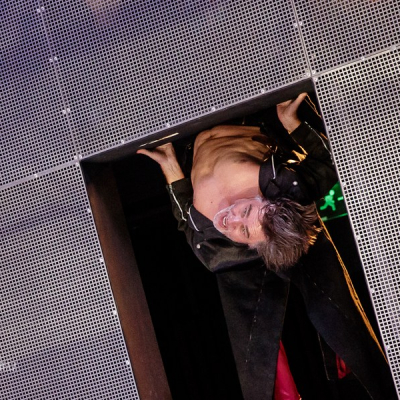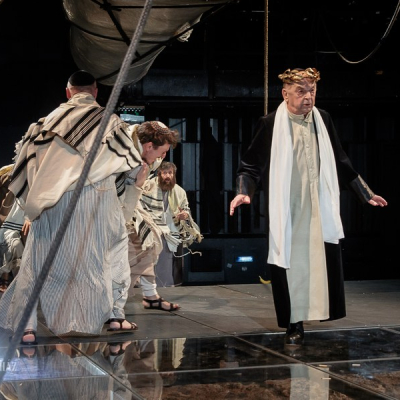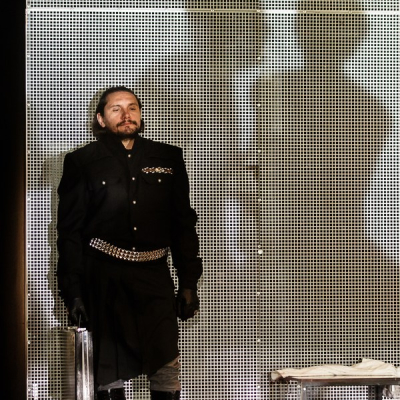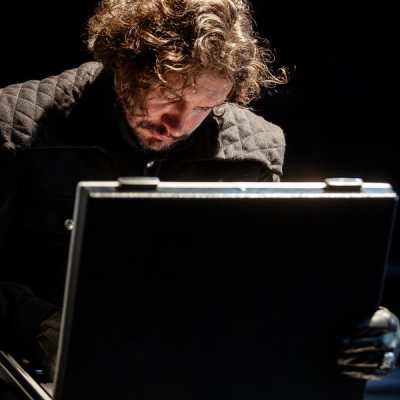CALIGULA’S GOVERNOR
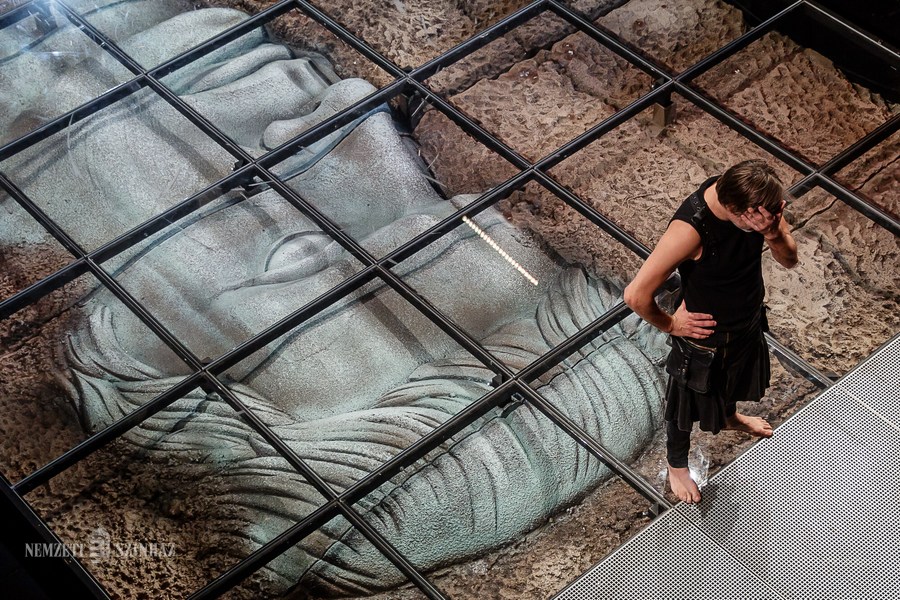
National Theatre, Budapest, Hungary
Director: János Szász
1 hours 40 minutes, without breaks.
What can Petronius, governor of Syria, do when the Caligula commands him to erect a statue of the emperor in the synagogue in Jerusalem as a symbol of imperial power? The symbolic conquest by the Roman Empire is a dire threat from the perspective of the Jewish people of Syria.
Petronius finds a worth adversary in the local high priest, Berechiah, who as his opponent in debate puts the Romans in an impossible moral dilemma. Can they destroy a nation merely to erect a statue?
This is a drama of agitation and uprising. Will Berechiah be able, with his words, to break the existing order and thwart Caligula’s plan? Will the governor be troubled by doubts? If so, not only will the established order collapse, but a ruler seen as impossible to sway will also fall.
The solution lies simply in paying off Caligula, which Berechiah agrees to do in the name of his people. Piles of gold for the emperor! The messenger brings the reply: Caligula has given his agreement. But at the last minute, because of a betrayal discovered by an informant, the Roman emperor changes his mind. The statue must be erected in the temple. Patronius faces the most difficult decision of his life: either he follows Caligula’s order, and in doing so, destroys a nation, or he himself will fall.
Transylvanian poet, writer, and playwright János Székely (1929–1992) was one of the most important creative figures of the second half of the 20th century. With his 1972 play Caligula’s Governor, created an oeuvre for the stage which put him among the great playwrights of the world. It is a drama which stretches beyond the local context (Transylvania under Ceaușescu) and the political implications of its time. Székely’s finest works are on the one hand always deeply personal and confessional, while at the same time they also on the ways in which humankind in the 20th century was robbed of its transcendental aspirations. He gives expression to universal questions of communal fate which were perhaps particularly pressing in the time and context in which he lived and composed.
Zsolt Trill
Zsolt Bogdán m.v.
József Rácz
Attila Kristán
Roland Bordás
Gyula Bodrogi
Balázs Bölkény m.v.
Római katonák
Kisari Zalán m.v., Kocsis Gábor m.v., Kovács S. József, Madácsi István e.h., Szurcsík Ádám m.v.
Zsidó előkelőségek:
Bor László m.v., Bor Márton m.v., Dégi János m.v., Korcsmáros András m.v., Rékai Nándor m.v.
Rita Vereckei
Dr. Gábor Balázs
János Szász


